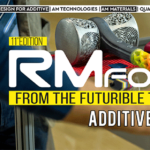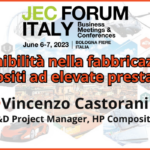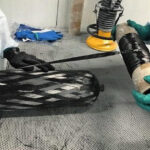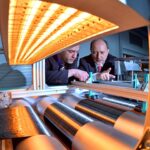Currently, items like mobile phones, microwaves and car dashboards are assembled using adhesives. But, due to problems dismantling the various materials for different recycling methods, lots of these products will be destined for landfill.
The research
Dr Barnaby Greenland, Lecturer in Medicinal Chemistry at the University of Sussex have worked with Stanelco RF Technologies Ltd and Prof Wayne Hayes at the University of Reading, for finding a solution. Recently, in a new research paper, published by the «European Polymer Journal», Dr Greenland and the team describe a new type of adhesive which contains tiny particles of metal. When passed through an alternating electromagnetic field, the glue melts and products simply fall apart. In this way products otherwise destined for landfill, could now be dismantled and recycled at the end of their life. The adhesive works with plastic, wood, glass and metal and in terms of strength, is comparable to those currently used in industry.
The process and its applications
Dr Greenland said: “In as little as 30 seconds, we can unstick items using a relatively weak magnetic field. A power source connected to an inductor creates the electro-magnetic field which produces heat in the metal particles within the glue and effectively melts it so that the various materials that were previously held together are separated. There’s little glue residue left over – although this wouldn’t be a problem for metal objects which are melted down for recycling anyway. Using these specific levels of magnetic field to heat is also incredibly safe. The energy only heats the metal specks in the glue, so we could place our bare hands in the field and feel absolutely no heat at all.”
In principle, the formula could be applied to any thermal adhesive making it an innovation which could be incorporated into industry relatively easily.
A green solution
Dr Greenland said: “In essence, we could have a big conveyor belt of products going through a magnetic field where they enter fully assembled and come out the other end completely dismantled. […] the glue has provided a simple and green solution to quite a large problem. Now, glued products can often only be dismantled using chemicals so not only are we saving items from going to landfill, but we’re also reducing the need to use potentially harmful substances when it comes to getting rid of products.”
Further development
The team have also demonstrated that this heating technique can be used to stick items together, and as the project continues, efforts will focus on investigating this process further.
Original source: University of Sussex












